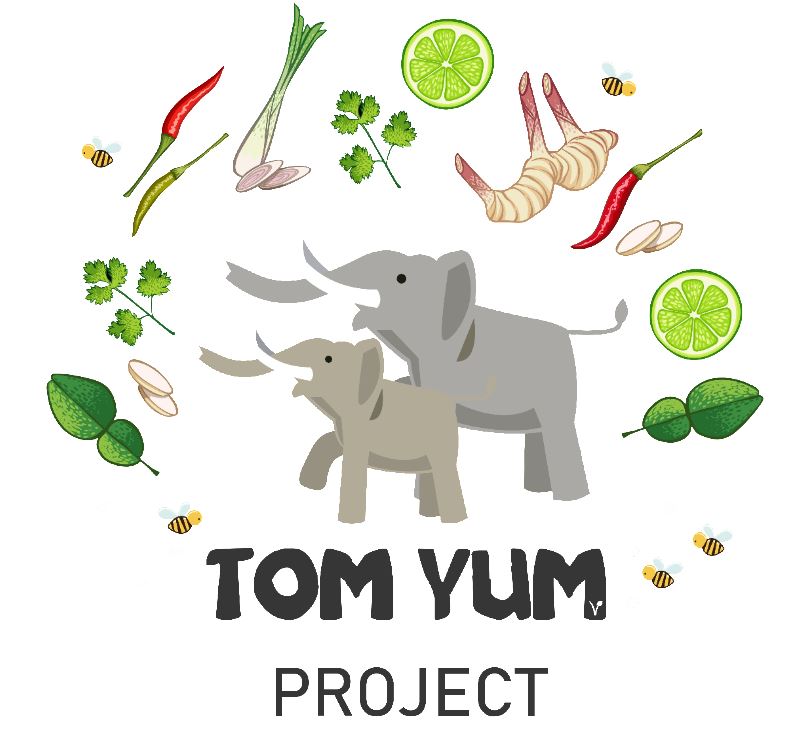By David Owen, BTEH’s Country Director Thailand
Some more interesting behaviour in our alternative crop plots. We see the elephants avoiding the crops as much as possible by using the space between species or walking within the rows of crops. One of the pros of lemongrass and citronella are that even if they’re trampled, the thick root mass remains intact, and is barely affected by elephants passing through the plot. We harvest the plots next month and are expecting a big yield (hopefully one big enough to compete with income generated through pineapple!)
Too spicy for elephants!
The Tom Yum project is named after the spicy, healthy Thai soup of which the ingredients (chilli, garlic, lemongrass, galangal, kaffir lime, onion, coriander) are not attractive to elephants. This means the crops can be used as an income-generating natural elephant deterrent. To maximise the product range and the diversity of livelihoods, we combine the Tom Yum ingredients with other crops that are disliked by elephants, such as lime, ginger, chamomile, mint, basil, turmeric, or citronella. To promote human-elephant coexistence in Thailand, we support farmers to grow these ingredients instead of mono-crops that impact biodiversity and attract elephants. The Tom Yum project helps to diversify local livelihoods, create employment for rural people, and protect the ecosystems on which we all depend.
Read more about the Tom Yum project and it’s updates.
‹ Back to previous page